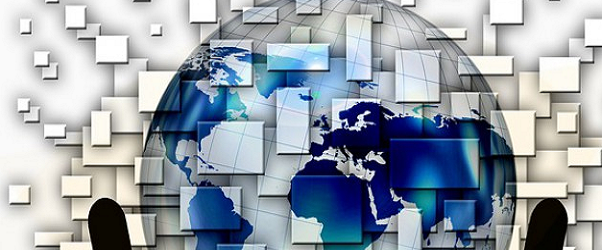Globalization, being the most complex and controversial development of the modern times, has become a factor that impacts various aspects of social existence and determines the fate of humanity and particular individuals. Albeit the opinions on its nature differ, the researchers characterize it as the progress of communications, time and space defying technologies and formation of transnational relations and new international institutions.
By expediting the prompt flow of information to every citizen of the planet, globalization travels through distance and time, enhances people-to-people contacts, changes the fabric of moral consumption, ushers in new social rules, obliterates national boundaries and indeed, bolsters unity in the world.
Throughout its history, the mankind has strived towards integration – seeking common political, economic or socioeconomic spaces. However, never in the world history has the mankind achieved a creation of a universal political and economic space, called for ensuring global environment for stable and secure growth. There has been no historical equivalent of the global integration process that has started in the XIX century and has been on the rise since then, with brief intermissions in the XX century. Therefore, this prompts the need to analyze the probable outcomes of the logic of globalization and the changes it provokes in the society and individuals, particularly with regard to social and moral values.
There is a methodological difference in the systematic evaluation of the globalization processes, with the substance viewed from various philosophical angles. Let us examine them:
1) The period of global economic growth. According to this method, the globalization is the new level of economic development and increasing prosperity. The proponents include the likes of R. Dahrendorf, F. Nuscheler, O. Lafontaine, B. Gates and B. Clinton. According to them, globalization allows the mankind to alleviate the problems deemed insurmountable in the past (international conflicts, challenges for the developing countries, poverty and etc.). Thus, the globalization is evaluated in a grossly optimistic and yet, lopsided fashion. Despite that the economy rests in the center of the globalization processes, it is insufficient for the assessment of outcome in the other fields of the social life;
2) Era of global, multicultural society. This method characterizes the globalization as a new qualitative occurrence of intercultural and geopolitical relations. Globalization eliminates the centuries-long borders and annihilates identity. One of the most renowned representatives of this approach is S. Huntington. According to him, globalization impels the growth of conflicts around the globe. The world becomes a struggle arena between smaller systems – ethnocultural civilizations (S. Huntington indicates 8 such civilizations). In the process of globalization the economic growth alters the geopolitical landscape and thus, provokes a number of new conflicts. The most important one is located at the border of the Western and non-Western civilizations. Scarcity of resources and their distribution constitute the substance of this approach. Presumably, due to special attention to the real outcomes of the globalization, its sources are overlooked.
3) Globalization as a systematic transformation of the social medium.From the standpoint of this method, globalization implies decimation of conventional political rules that are centered on state sovereignty and integration principles. Proponents of this concept are troubled by the consistent weakening of vehicles of political governance and a power vacuum that emerges as a result. In his ”risk society” concept, the German sociologist U. Beck describes the globalization of the society as the process of counter-politicization and counter-management. In the environment of collapsing traditional society, the power is seized by the absolutely new historical actors – transnational corporations and international and non-governmental organizations. As a result, such major achievement of the Western civilization as a “welfare state” is nullified. The proponents of this method are more susceptible to changes on the political arena.
4) Negativity prevails in this method, that views globalization as dismantling of culture and traditions. The anti-globalization movement stems from this attitude. For the first time, pronounced signs of an American-style globalization emerged in the 1999. That year the anti-globalists managed to derail the WTO meeting. Already every meeting of the globalization supporters (be it World Economic Forum or G8) sees a fierce protest from the anti-globalists. Opponents of the American-style globalization are branding their actions as ”new anti-corporate movement” and ”movement for global democracy”.
Anti-globalization organizations stand out owing to their distinctive names: ”Chance 2000”, ”Black Block”, ”Obstacle for Globalization”, ”Mobilization for Justice”, ”Class War”, ”Animal Liberation Front”, ”Friends of the Earth” and others. According to some estimates, there are nearly 120 such organizations active around the world.
The primary aim of the anti-globalization movement is to restore justice. For them, the absolute rule of the transnational companies on the global level is unacceptable. They are suggesting to change the current situation through redistribution of riches and resources accumulated in the wealthy countries. Presumably, within the aforementioned methods, both positive and negative aspects of the globalization are taken into account.
Latafat HUMMATOVA
PhD in Philosophy, Associate Professor Azerbaijan University of Economics

























































